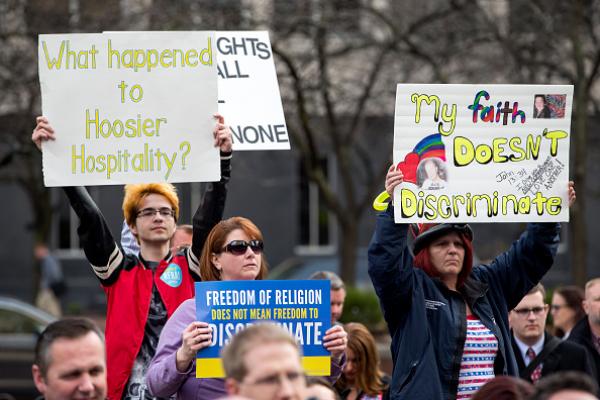Apr 1, 2015
For the past several days, Indiana Gov. Mike Pence has found himself at the center of a political firestorm over his state’s adoption of a new Religious Freedom Restoration Act.
Many believe that Indiana’s law went too far, including many in the faith community, because it could have opened the door for businesses to discriminate on the basis of sexual orientation. Pence has repeatedly denied this was the intent — and early Thursday morning, Indiana's Republican leaders announced a deal that they say would make it clear no one will "be able to discriminate against anyone at any time." Read the changes here. The new anti-discrimination language has already drawn a positive response from some of the original law’s critics.
Of course, the debate continues, as those on one side say the clarification doesn’t go far enough and those on the other that it was an unnecessary concession. We see the RFRA debate extending to other states, like Arkansas, where amid concerns from Wal-Mart and his own son, Gov. Asa Hutchinson last night said he wouldn’t sign the pending religious freedom legislation until it mirrors the federal law — taking a note from the Indiana dust-up.
The dangerous part of the original Indiana law was that by including businesses in RFRA protections, it went further than other state RFRA laws and could even give permission for discrimination.
Read the Full Article

Already a subscriber? Login
